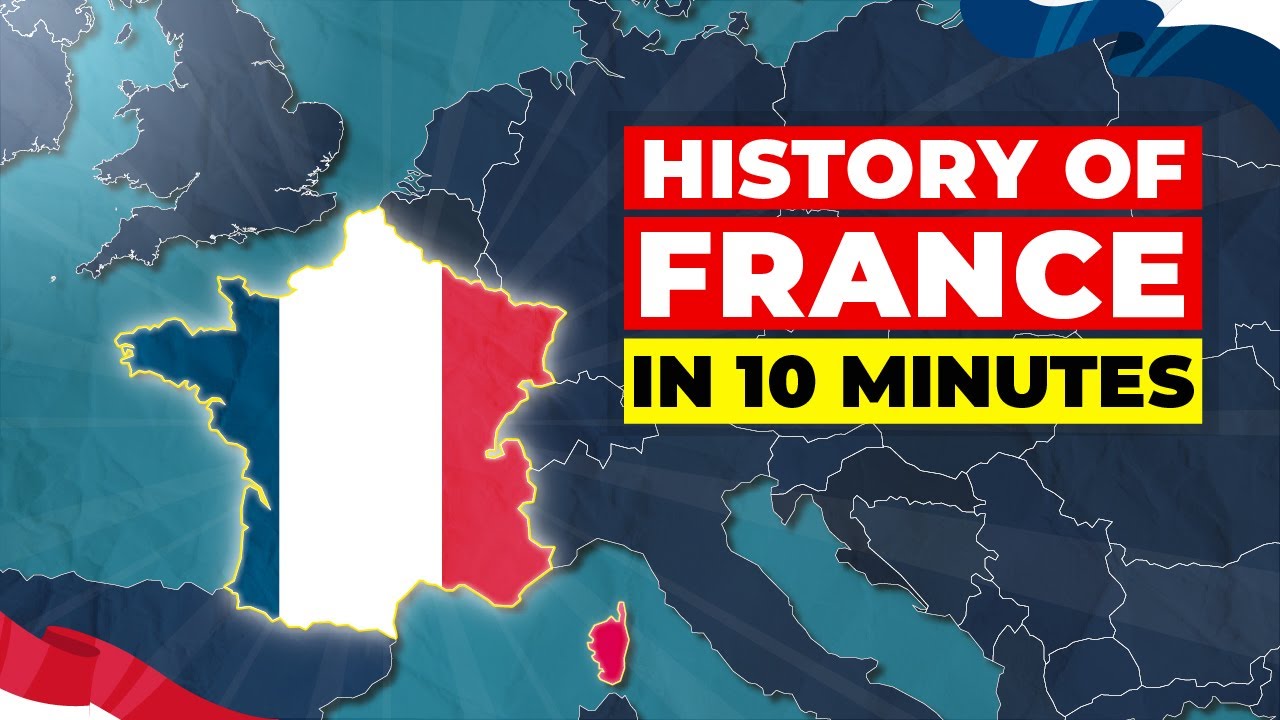France post WWII - Cold War DOCUMENTARY
Summary
TLDRThis video script explores the transformative period of French history from the devastation of World War II to the establishment of the Fifth Republic. It highlights Charles de Gaulle's pivotal role, from leading the Free French Forces during the Nazi occupation to shaping France's post-war political landscape. The narrative covers de Gaulle's struggle for recognition, the liberation of Paris, his temporary resignation, and eventual return to power, establishing a stronger executive branch. It also touches on France's decolonization efforts, the Algerian War, and its pursuit of nuclear capabilities, painting a picture of a nation navigating a complex geopolitical landscape while maintaining its identity and influence.
Takeaways
- 🏰 France was once the most powerful military nation in Europe until it was swiftly defeated by Germany in 1940.
- ⏳ In 1940, 90,000 French soldiers were killed within six weeks by German blitzkrieg tactics.
- 🗽 After Paris fell, Germany established a puppet government in Vichy, while a French government-in-exile operated from London.
- 🎖️ Charles de Gaulle led the French government-in-exile and insisted on maintaining the independence of French forces during WWII.
- 🤝 De Gaulle had a contentious relationship with Winston Churchill, reflecting the complex dynamics among the Allies.
- 🇫🇷 French forces played a crucial role in liberating Paris, highlighting their resurgence after the initial defeat.
- 🏛️ Post-liberation, de Gaulle became the president of an interim French government, aiming to reset the political landscape.
- 🌐 De Gaulle was concerned about France's exclusion from key post-war conferences like Yalta and Potsdam, which shaped the post-war world.
- 🗳️ The Fourth Republic was established after WWII, with de Gaulle initially serving as president but later resigning due to political disputes.
- 💥 France faced significant challenges in maintaining its colonial empire, including conflicts in Indochina and North Africa.
- 🔄 The instability of the Fourth Republic led to Charles de Gaulle's return to power, where he implemented a new constitution, marking the beginning of the Fifth Republic.
Q & A
How did France's military power fare during the German invasion in 1940?
-France's military power was utterly obliterated during the German invasion in 1940, with 90,000 soldiers falling to blitzkrieg attacks in just six weeks.
What was the role of Charles de Gaulle during the German occupation of France?
-Charles de Gaulle became the leader of the French government-in-exile during the German occupation in 1940, leading a rival French government to the Vichy regime from London.
How did de Gaulle's relationship with Winston Churchill affect their collaboration during World War II?
-De Gaulle's relationship with Winston Churchill was contentious, with both leaders often being angry at each other, but they managed to maintain a working relationship through their strong connection with General Eisenhower.
What were Charles de Gaulle's main priorities as the president of the interim French government from 1944 to 1946?
-De Gaulle's main priorities included preventing French Communists from having significant influence over the post-war government and maintaining the independence of French fighting forces.
Why did France not have a seat at the table in conferences deciding the post-war world?
-France did not have a seat at conferences like Yalta or Potsdam because they were not invited by the 'big three' (the UK, US, and USSR), which led to de Gaulle's resentment towards them.
What was the outcome of the first elections in France after liberation in 1945?
-The first elections after liberation led to the establishment of the Fourth Republic, with a constitution that had a powerful prime minister and a mostly symbolic presidency.
Why did Charles de Gaulle resign as president of the Fourth Republic?
-De Gaulle resigned as president of the Fourth Republic due to disagreements over the inclusion of Communist Party members in the government and proposed reductions in military spending.
How did France's colonial struggles, particularly in Algeria, contribute to the end of the Fourth Republic?
-France's colonial struggles, especially the war in Algeria, led to political instability and a crisis that culminated in settlers taking over government buildings in Algiers, which contributed to the end of the Fourth Republic.
What changes did Charles de Gaulle implement in the French constitution during his return to power in 1958?
-De Gaulle implemented a new constitution with a much stronger presidency, which was approved by a referendum with 82.6% of voters in favor, marking the birth of the Fifth Republic.
How did France's geopolitical position and military strength influence its role during the Cold War?
-France's significant military force, top-class domestic military-industrial complex, and key geographical position made it a critical part of the Western bulwark against the Soviet Union during the Cold War, despite its sometimes contentious relationship with its allies.
Outlines

هذا القسم متوفر فقط للمشتركين. يرجى الترقية للوصول إلى هذه الميزة.
قم بالترقية الآنMindmap

هذا القسم متوفر فقط للمشتركين. يرجى الترقية للوصول إلى هذه الميزة.
قم بالترقية الآنKeywords

هذا القسم متوفر فقط للمشتركين. يرجى الترقية للوصول إلى هذه الميزة.
قم بالترقية الآنHighlights

هذا القسم متوفر فقط للمشتركين. يرجى الترقية للوصول إلى هذه الميزة.
قم بالترقية الآنTranscripts

هذا القسم متوفر فقط للمشتركين. يرجى الترقية للوصول إلى هذه الميزة.
قم بالترقية الآنتصفح المزيد من مقاطع الفيديو ذات الصلة

The Entire History of France in 23 Minutes

Full History of France: From Ancient Times to Today

02 Império

TÓM TẮT LỊCH SỬ VIỆT NAM GIAI ĐOẠN TỪ 1939 - 1945

THE FOUNDING OF THE PEOPLE'S REPUBLIC OF CHINA - CHINESE CIVIL WAR DOCUMENTARY PART 3

Histoire du Québec Canada: 1896 à 1945 (chapitre 2 du 4e secondaire)
5.0 / 5 (0 votes)
